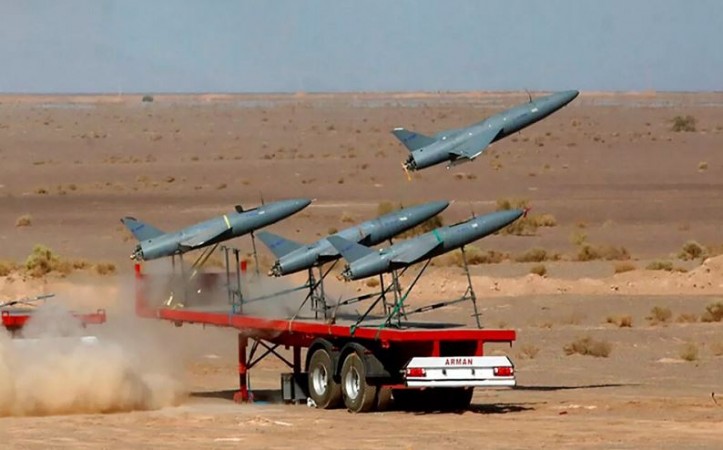
In a move that has drawn criticism from the West, Iran announced on Saturday that it had successfully launched a satellite into its highest orbit to date. The Soraya satellite reached an orbit approximately 750 kilometers (460 miles) above Earth's surface, propelled by a three-stage rocket, according to the state-run IRNA news agency. The purpose of the satellite was not immediately disclosed.
This development comes against the backdrop of heightened tensions in the wider Middle East, particularly with Israel's ongoing conflict with Hamas in the Gaza Strip. Additionally, just days ago, Iran and Pakistan were involved in reciprocal airstrikes, adding to the regional instability.
The satellite launch is attributed to Iran's Revolutionary Guards' space program, operating alongside the country's civilian space program. Independent confirmation of the satellite's successful orbit was not immediately available.
The United States has previously expressed concern, asserting that Iran's satellite launches violate a U.N. Security Council resolution. Washington has urged Tehran to refrain from activities related to ballistic missiles capable of carrying nuclear weapons. It's worth noting that U.N. sanctions tied to Iran's ballistic missile program lapsed in October of the previous year.
The 2023 worldwide threat assessment by the U.S. intelligence community emphasized that the development of satellite launch vehicles could expedite Iran's capability to develop intercontinental ballistic missiles, sharing similar technological foundations. Intercontinental ballistic missiles are a cause for concern as they can potentially deliver nuclear weapons. This situation adds to global unease as Iran's nuclear program has recently seen uranium enrichment reaching levels dangerously close to weapons-grade, following the breakdown of its nuclear deal with world powers.
Despite Iran's consistent denial of pursuing nuclear weapons, concerns arise due to its organized military nuclear program until 2003, as reported by U.S. intelligence agencies and the International Atomic Energy Agency (IAEA). The involvement of the Revolutionary Guards in these launches, coupled with the use of mobile launchers, further raises apprehensions in the West.
While Iran has achieved milestones in space exploration over the past decade, with several satellites sent into orbit, it has faced setbacks, including five consecutive failures in the Simorgh program. Tragedies, such as a fire at the Imam Khomeini Spaceport in 2019 that claimed three lives, have also marred the program. The global community is closely monitoring Iran's space endeavors, given their potential implications for regional and international security. In December, Iran demonstrated its capability by sending a capsule into orbit designed for animal transportation, signaling preparations for future human missions.
Trade Flows Uninterrupted: Pakistan and Iran Maintain Border Commerce Amid Tensions
How Missile and Drone Exchanges Between Iran and Pakistan are Shaping the Middle East Dynamics
Tensions Soar as Pakistan and Iran Exchange Airstrikes, Civilian Lives at Risk